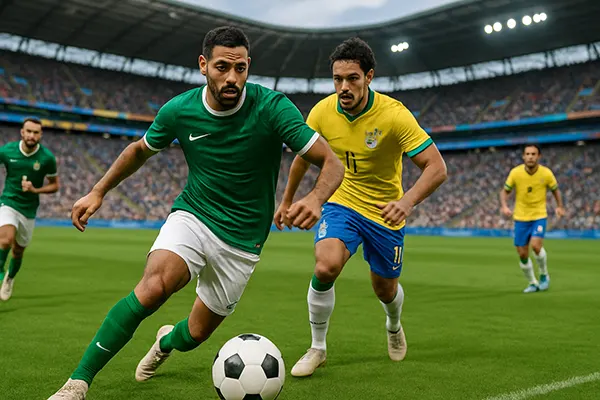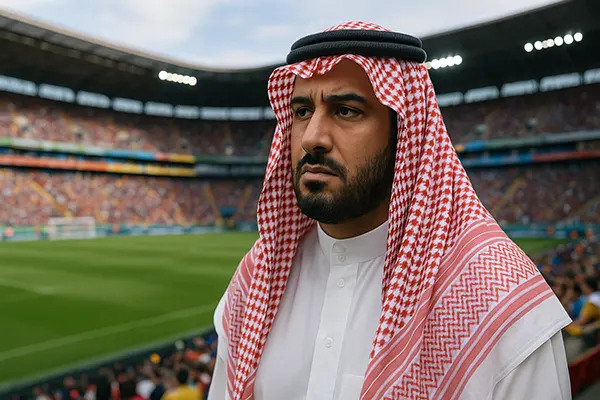Why Saudi Arabia Declined to Purchase a New European Club in April 2025

In April 2025, reports emerged that Saudi investment groups, particularly those associated with the Public Investment Fund (PIF), had abruptly pulled back from acquiring another European football club. This decision, while unexpected by some, is rooted in a mix of strategic shifts, economic reassessments, and increasing geopolitical pressures. Let’s explore the key reasons behind this change in approach.
Strategic Realignment of Saudi Sports Investments
Since 2021, Saudi Arabia has aggressively pursued a global presence in sport, from acquiring Premier League club Newcastle United to launching LIV Golf and investing in Formula 1. Football, in particular, has been central to this expansion. However, in early 2025, the PIF signalled a transition from aggressive expansion to strategic consolidation, aiming to stabilise current assets before pursuing new ventures.
Insiders suggest that the rapid growth of the Saudi Pro League has become a national priority. With megastars like Cristiano Ronaldo, Neymar, and Karim Benzema already on board, domestic football now requires structural support, infrastructure development, and sustainable commercial frameworks. These needs are demanding significant resources that were initially earmarked for potential European acquisitions.
Moreover, maintaining competitive balance within Saudi Arabia’s own league is now seen as more beneficial to the kingdom’s Vision 2030 strategy than purchasing another European brand. Authorities are keen to enhance local talent development and position the Pro League as a global competitor to Europe’s top five leagues.
Increased Scrutiny from UEFA and Domestic Leagues
Another decisive factor has been the mounting scrutiny from European football bodies. UEFA’s recent moves to limit multi-club ownership—where a single entity holds stakes in multiple clubs competing in the same tournaments—have raised regulatory red flags for sovereign wealth funds like PIF.
In January 2025, UEFA announced new financial and ownership regulations effective from the 2025–26 season. These include stricter definitions of control and influence, making it difficult for investors linked to state funds to own multiple clubs without facing exclusion from UEFA competitions such as the Champions League and Europa League.
This shift has introduced legal and reputational risks. For Saudi Arabia, the perception of state-driven influence in European competitions could undermine its broader campaign to be seen as a neutral player in global sports governance. Avoiding regulatory confrontation may have been deemed preferable to continuing with the acquisition.
Economic Factors and Market Volatility
While Saudi Arabia boasts substantial financial reserves, 2025 has not been devoid of economic pressures. Oil prices have remained volatile due to fluctuating global demand and OPEC+ production uncertainties. The International Monetary Fund forecasted only moderate GDP growth for Saudi Arabia in Q1 2025, prompting tighter scrutiny of outbound investments.
Furthermore, the valuation of European clubs has risen sharply, with sellers now pricing their assets at premiums that investors consider unjustified. Clubs in Italy, France, and even the lower tiers of English football have demanded excessive sums based on brand value rather than tangible financial performance. This created reluctance among Saudi bidders to proceed without guarantees of return on investment.
Simultaneously, currency instability—particularly the weakening of the euro against the dollar and other regional currencies—has added further complexity. For Riyadh, investing at such a moment would have entailed exchange rate risks, possibly depreciating the value of assets held abroad in the short term.
Lessons Learned from Previous Acquisitions
Saudi investors have already experienced both the gains and pitfalls of club ownership. While Newcastle United has proven to be a public relations success, the behind-the-scenes management has been resource-intensive. The complexities of English football’s ecosystem, particularly with media, fan engagement, and regulatory scrutiny, were greater than expected.
These lessons have made PIF and other groups more cautious. Future deals will likely require more direct operational control, clearer profitability metrics, and long-term alignment with Saudi Arabia’s national objectives. Clubs that cannot meet these conditions are now less attractive than they were during the initial phase of expansion.
This change in mindset reflects a maturity in investment philosophy—one that prioritises sustainable partnerships over flashy headlines or geopolitical statement pieces.

Geopolitical Tensions and Diplomatic Considerations
Lastly, evolving geopolitical dynamics have also played a role. Western European governments and NGOs have amplified criticism of Gulf states’ human rights records, particularly when linked to high-profile sports acquisitions. In some cases, local fan groups and politicians have staged campaigns against foreign takeovers, labelling them as “sportswashing.”
In April 2025, a proposed acquisition of a mid-table French Ligue 1 club was met with fierce opposition from local authorities and the French Football Federation. Public petitions, media campaigns, and legislative threats prompted Saudi backers to reconsider and eventually withdraw their offer.
Saudi Arabia is aware that constant international backlash can taint the perception of its global sports initiatives. Hence, steering clear of controversial acquisitions has become a protective measure for its soft power strategy.
Future Outlook and Focus Areas
Moving forward, Saudi Arabia appears to be shifting its focus to creating regional alliances, expanding eSports infrastructure, and hosting more international tournaments domestically. In doing so, it retains its influence in global sport without the burden of contentious ownership battles.
The PIF is also exploring partnerships with private equity firms to co-invest in sports properties, enabling indirect ownership structures that may bypass regulatory constraints. These methods offer flexibility while still fulfilling Saudi Arabia’s broader sporting ambitions.
Ultimately, the decision not to proceed with another European football club acquisition underscores a more calculated and sustainable phase in Saudi Arabia’s international sporting journey—one grounded in strategy, not spectacle.



